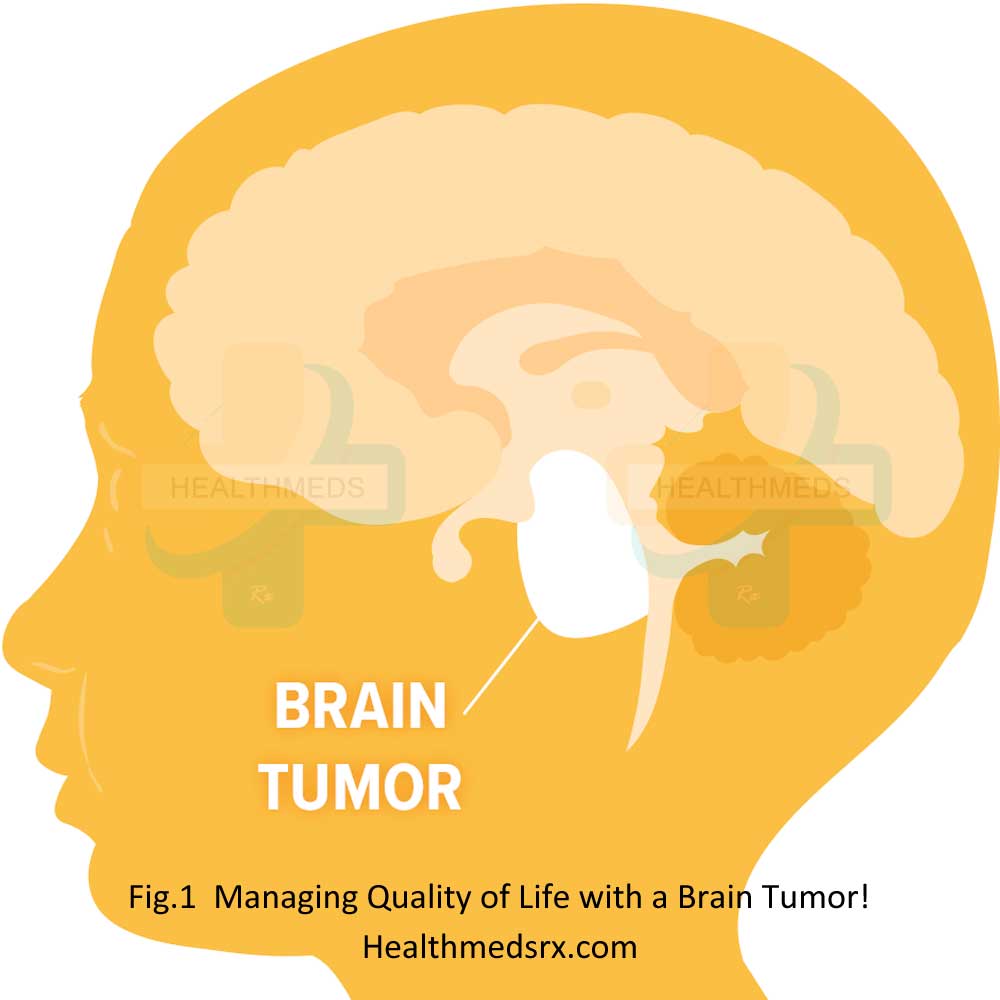Managing Quality of Life with a Brain Tumor

Brain tumor is the abnormal growth of brain cells that can cause a variety of physical, cognitive, and emotional problems. There are two basic categories of brain tumor, primary which originate in the brain itself, and secondary which start elsewhere in the body but spread to the brain. Depending on where the tumor is, headaches, seizures, or problems with coordination and balance may occur. Along with concentration and memory, it can also affect mood. Brain tumor is usually treated with surgery and/or radiation therapy according to the size, grade, and location.
Diagnosing & Treating Brain Tumor
Depending on the size and location, a brain tumor may cause a variety of symptoms, such as headaches, nausea, vision issues, seizures, and difficulties with coordination. A person may occasionally have memory loss or confusion along with alterations in their mood or personality. An MRI scan determines the exact size and location of the tumor. To check if it’s malignant, procedures like blood tests or a biopsy is important.
The type and location of a brain tumor determine the treatment methodology. If the tumor is accessible from outside the skull, surgery is often required; However, radiation therapy may be suggested for tumors that are deeper in the brain tissue. Radiation therapy works by using beams of energy to kill cancer cells and minimize damage to surrounding tissue. Chemotherapy is useful in some situations where surgery is not an option or when there is a higher risk of recurrence following surgery. Doctors often create a custom treatment plans as per patient needs and takes into account their age, medical history, and overall prognosis.
Managing Quality of Life with a Brain Tumor
Managing the quality of life can be difficult when suffering from a brain tumor, but there are ways to ensure that the patient lives a happy and fulfilling life. Emotional support is the most important aspect. During this difficult time, family members, friends, and medical professionals must show compassion and understanding. Moreover, they should be there to calm the patient as needed and guide them through any difficulties they face.
In addition to emotional support, several coping strategies can help manage symptoms caused by a brain tumor. Stress levels can be reduced through relaxation techniques such as yoga or meditation, which can help reduce pain or discomfort caused by certain symptoms. Other essential components of symptom management include eating healthy foods, exercising regularly, and getting plenty of restful sleep, all of which help increase energy while increasing overall well-being. Finally, depending on the type and severity of symptoms, medications may be prescribed. These often include anti-seizure medications and steroids to reduce inflammation to minimize the side effects of treatments such as radiation therapy or chemotherapy.
Living with a Brain Tumor
Living with a brain tumor can be difficult, but there are many ways to improve one’s quality of life. One of the most important factors is to maintain a positive attitude and focus on who is in control. Finding activities in something engaging, such as a hobby or exploring a new interest, can also help maintain a positive outlook. Additionally, maintaining regular phone or video chat connections with friends and family can help boost motivation when it’s hard to stay motivated.
In addition to emotional support, establishing proper diet and exercise habits is important to control brain tumor-related symptoms. Simple lifestyle modifications, such as drinking more water throughout the day and eating nutritious foods like fruits, vegetables, and lean protein, will help boost general health and well-being in addition to boosting energy levels. Custom Exercise as per each individual’s needs, but for those who find it difficult to engage in more vigorous exercise due to physical limitations due to their illness, light walking, yoga, or stretching are all great options.
It’s important to find ways to relax to reduce stress, which can help alleviate the pain or discomfort caused by some symptoms. Some suggestions include listening to music, practicing deep breathing techniques, or engaging in mindfulness exercises such as journaling or meditation apps available online (e.g., Headspace). Taking a break from our regular activities can also provide us the opportunity to get the restful sleep we need to refuel our bodies and minds so we can take on our daily tasks with greater efficiency!
Common Questions
If you want to learn more about brain tumors, there are a variety of resources available. Online portals such as the American Brain Tumor Association and the National Brain Tumor Society contain comprehensive information on brain tumor diagnosis, available treatment options, and support services. Through online forums, patients can interact with others to discuss experiences and support each other during these difficult times.
Books written by medical experts can provide more in-depth coverage of specific topics related to brain tumors, including current treatments and cutting-edge research. In addition, cancer centers and local hospitals often offer educational resources on various topics related to the disease, including financial assistance programs for individuals who need help paying for care.
For healthcare professionals with the most recent information regarding brain tumors, journals like Neuro-Oncology Practice publish articles on new clinical trials and the best ways to treat patients with this issue. Organizations like The World Federation of Neuro-Oncology (WFNO) host meetings throughout the year which bring together experts from around the globe to share their knowledge in this intricate area of medicine. Typically, these events feature presentations from top researchers as well as discussions among clinicians about the most effective ways to identify and treat various types of brain tumors.
Conclusion
In conclusion, understanding brain tumors is critical to ensuring that those living with the condition have access to the best care. With the right diagnosis and treatment, patients can maintain a high quality of life, regardless of any physical or emotional difficulties they face on their journey.

